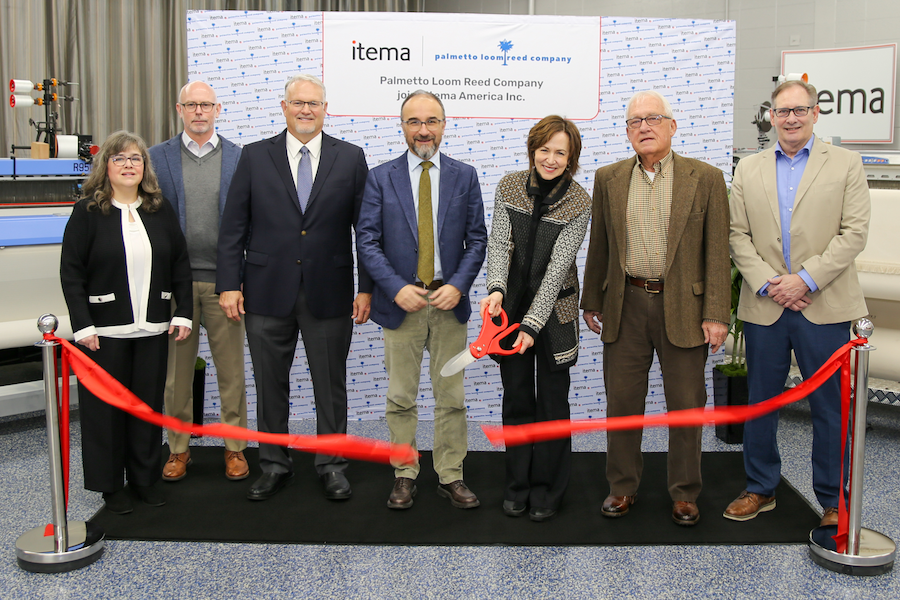#Europe
Harnessing talent in Europe: a new boost for EU Regions
If left unaddressed, this transition will trigger new and growing territorial disparities as regions age and fall behind in number and skills of their workforce. It can change Europe's demographic landscapes hampering the resilience and competitiveness of the EU.
Ensuring that regions facing a talent development trap become more resilient and attractive is crucial in the EU's commitment of leaving nobody and no place behind.
This is why the Commission is launching the ‘Talent Booster Mechanism'. This Mechanism will support EU regions affected by the accelerated decline of their working age population to train, retain and attract the people, the skills and the competences needed to address the impact of the demographic transition.
The Mechanism is presented in today's Communication on Harnessing Talent in Europe's Regions and is the first key initiative in 2023 contributing to the European Year of Skills as proposed by the Commission, which aims to bring a fresh impetus for re- and upskilling. The Communication offers tailor-made, place based and multi-dimensional solutions, including the use of existing EU funds and initiatives to support regions most affected by the ongoing demographic transition and its side-effects and prevent the emergence of new and increased territorial disparities in the EU.
The Commission is also publishing today its 2023 Report on the Impact of Demographic Change, which updates the Demography Report of 2020. It revisits the demographic trends and the impacts that had been identified in light of recent developments, such as Brexit, Covid or the Russian military aggression against Ukraine. The Report stresses that, to ensure future prosperity and well-being in the EU, it is crucial to address the challenges brought about by the demographic transition. These challenges include an ageing as well as declining population, and a shrinking working-age population, but also increasing territorial disparities, including a growing urban-rural divide. The Report looks into how and if the established demographic patterns are accelerated or disrupted, and when they take place, if the disruptions are transitory, or have a lasting impact on demographic change.
The ‘talent development trap' in some EU Regions
EU Member States are facing a sharp decline of their working age population. This population has decreased by 3.5 million people between 2015 and 2020 and is expected to shed an additional 35 million people by 2050.
82 regions in 16 Member States (accounting for almost 30% of the EU population) are severely affected by this decline of the working age population, a low share of university and higher-education graduates, or a negative mobility of their population aged 15-39. These regions face specific structural challenges such as inefficiencies in labour market, education, training and adult learning systems, low performance in the areas of innovation, public governance or business development, and low access to services. By addressing these challenges, the regions could attract more skilled workers. Several of these regions are already in a ‘talent development trap' while the others face this risk in the near future. If left unaddressed this situation will threaten the long-term prosperity of the EU.
A new EU mechanism: the ‘Talent Booster Mechanism'
The Commission will develop the Talent Booster Mechanism based on 8 pillars:
A new pilot project will be launched in 2023 to help regions facing a ‘talent development trap' elaborate, consolidate, develop and implement tailored and comprehensive strategies, as well as to identify relevant projects, to train, attract and retain skilled workers. Support will be provided to pilot regions selected on the basis of an open call.
A new initiative on ‘Smart adaptation of regions to demographic transition' will kick off in 2023 to help regions with higher rates of departure of their young people to adapt to the demographic transition and invest in talent development through tailored place-based policies. Benefiting regions will be selected on the basis of an open call.
The Technical Support Instrument (TSI) will support Member States, upon demand under the TSI 2023 call, with reforms at national and regional level, necessary to address the shrinking of the working-age population, the lack of skills and respond to local market needs.
Cohesion Policy programmes and the Interregional Innovation Investments will stimulate innovation and opportunities for high-skill jobs and thus contribute improving possibilities to retain and attract talents in these regions.
A new call for innovative actions will be launched under the ‘European Urban Initiative' to test place-based solutions led by shrinking cities that address the challenges of developing, retaining and attracting skilled workers.
EU initiatives that support the development of talents will be signposted on a dedicated webpage. This will provide easier access to information to interested regions about EU policies in areas such as research and innovation, training, education, and youth mobility.
Experiences will be exchanged and good practices will be disseminated: regions will have the possibility to set up thematic and regional working groups to address specific professional or territorial challenges.
The analytical knowledge required to support and facilitate evidence-based policies on regional development and migration will be further developed.
Unleashing talent through existing EU funds and initiatives
The Communication also highlights how existing EU instruments and policies can support economic revitalisation and the development of the right skills to attract high-potential activities in the affected regions, including through the steer of the European Semester. Among others, the new European Innovation Agenda that sets out the Deep Tech Talent Initiative, a specific flagship to respond to the talent gap in deep tech sectors, integrating all regions in Europe.
The Communication also stresses how Cohesion Policy is and will continue to help these regions to diversify their economy, upgrade the accessibility to services, boost the efficiency of public administration and ensure the involvement of the regional and local authorities through dedicated place-based strategies.
Finally, it offers many examples of national and regional initiatives and best practices that effectively address the structural challenges in a local context, enhancing the regions' attractiveness for talents. To facilitate mutual learning, the Commission continues to work with national authorities, mapping the most acute demographic challenges they have identified as well as examples of policies and projects aimed at managing the impacts of demographic change.
Next steps
The Commission will regularly report on the implementation of this Communication.
Background
Addressing demographic change is key to building a fairer and more resilient society. As the on-going demographic transition affects various policy areas, it requires that policymakers, engage in complex coordination involving all relevant actors at EU, national, regional, and local level. While most of the policy levers dealing with these challenges remain at the national level, the Commission takes account of the implications and impact of demographic change in its policy proposals.
The Commission already adopted a Report on the Impact of Demographic Change in Europe in 2020, which paved the way for further initiatives in 2021 with the adoption of the Green paper on ageing and the Long-term vision for the EU's rural areas towards 2040.
Among the most recent initiatives at EU level which support Member States in dealing with demographic change in various areas and sectors, there is the European Care Strategy with the Council Recommendations on access to affordable, high-quality long-term care and early childhood education and care, the EU Comprehensive Strategy on the Rights of the Child and the European Child Guarantee, Youth Employment Support Package, the Commission Recommendation on Effective active support to employment, the Council Recommendation on ensuring a fair transition to climate neutrality, the Disability Employment Package and the recent proposal to make 2023 the European Year of Skills as well as the Communication on Harnessing Talent in Europe's regions that was adopted today.















